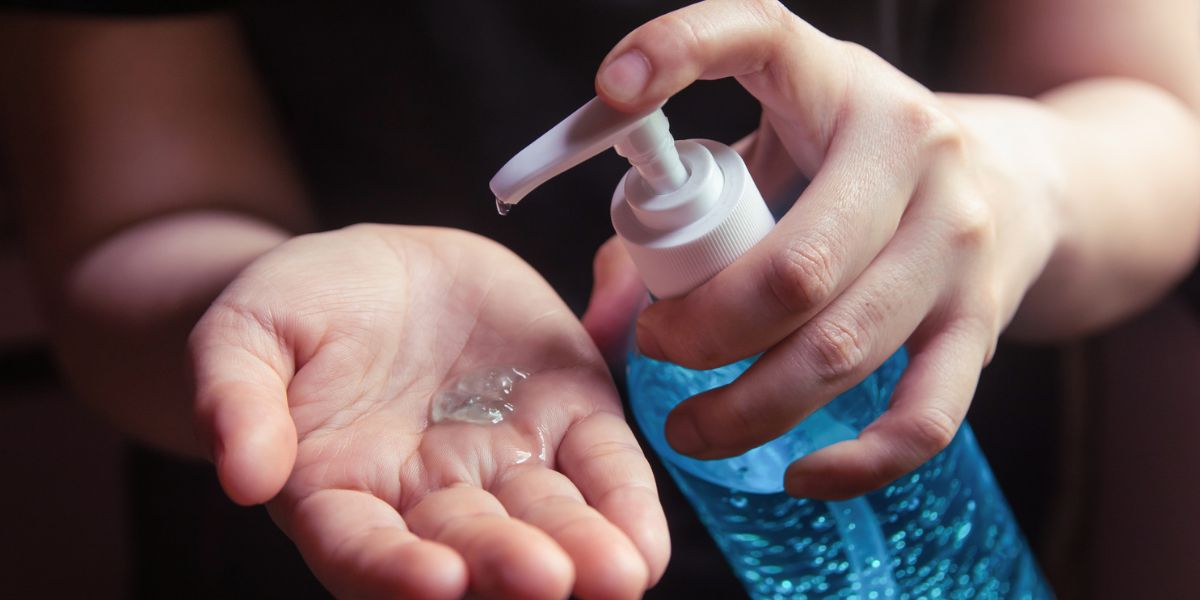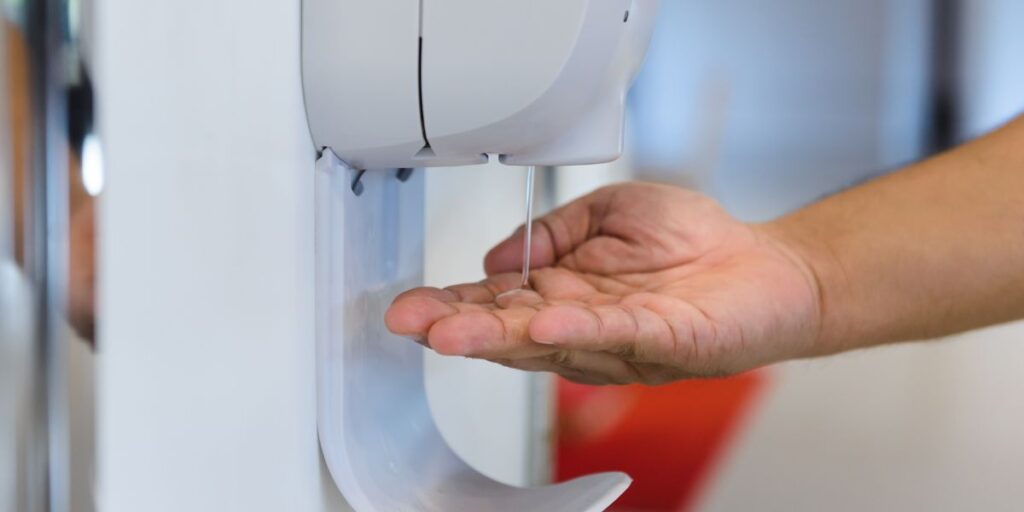Dangers of Drinking Hand Sanitizer


When COVID-19 hit, hand sanitizer became key to staying healthy. But a scary trend started with some folks drinking hand sanitizer.
Health pros are worried because swallowing hand sanitizer is bad for you. The alcohol-packed drink can be harmful and make you super sick if you drink it. If someone drinks hand sanitizer, they might feel queasy, vomit, get dizzy, or even suffer from alcohol poisoning.
Also, certain hand sanitizers have harmful chemicals that could cause severe health troubles if eaten. Drinking hand sanitizer is a dangerous habit and typically signifies alcohol use disorder. Teaching people how to use these products properly is important.
What Happens if You Drink Hand Sanitizer?
When COVID-19 hit, hand sanitizer became key to staying healthy. But a scary trend started with some folks drinking hand sanitizer.
Health pros are worried because swallowing hand sanitizer is bad for you. The alcohol-packed drink can be harmful and make you super sick if you drink it. If someone drinks hand sanitizer, they might feel queasy, vomit, get dizzy, or even suffer from alcohol poisoning.
Also, certain hand sanitizers have significantly harmful chemicals that could cause major health troubles if eaten. Drinking hand sanitizer is a dangerous habit. Teaching people how to use these products properly is important.

Can You Drink Hand Sanitizer to Get Drunk?
Drinking hand sanitizer can give you a buzz, but even a small amount can make you extremely drunk or sick. This can be dangerous and even deadly, rather than fun. This can be dangerous and even deadly, rather than fun.
Hand sanitizers contain alcohols and concentrations different from those in beverages meant for drinking, impacting the body in distinct ways. Alcohol ethanol, present in drinks like liquor, beer, and wine, is consumable, whereas alcohol isopropanol, a common component in hand sanitizers, is a medical disinfectant that’s unsafe to ingest.
Hand sanitizers’ alcohol content, whether ethyl alcohol or isopropyl alcohol, typically ranges from 60-95%, far exceeding the potency of most alcoholic drinks. These products might have one or both types of alcohol but are all unfit for consumption.
Before 2020, people frequently found methanol, another toxic type of alcohol, in hand sanitizers. However, the Food and Drug Administration (FDA) banned it because of its high toxicity.
In May and June 2020, people in Arizona and New Mexico got sick from drinking hand sanitizers with methanol. Four people died, and three had permanent eye damage from methanol poisoning.
Drinking Hand Sanitizer Side Effects
Because of the high alcohol content in hand sanitizer products, the adverse effects of consumption manifest swiftly. The symptoms and side effects mirror those of an individual with a significantly elevated blood alcohol content (BAC).
The side effects of consuming hand sanitizer encompass:
- Nausea
- Vomiting
- Headaches
- Vision impairment
- Dizziness
- Impaired speech
- Burning sensation in the nose, mouth, and throat
- Stomach pain and cramps
- Metabolic acidosis, or kidney failure due to acid accumulation
- Irreversible blindness
- Nerve injury
- Seizures
- Coma
- Fatal outcomes
If you have hand sanitizer at home, knowing the risks of swallowing it is important. This is particularly crucial if you have children or individuals with alcohol problems in your household. In case of an emergency, it is essential to know what steps to take.
Drinking Hand Sanitizer Dangers
Various public health organizations have alerted the public to the dangers of consuming hand sanitizer. Individuals eager for intoxication or aiming to fend off alcohol withdrawal may consume hand sanitizer, ignoring these warnings and risking severe health consequences. If you suspect someone has ingested alcohol-based hand sanitizer, it’s imperative to contact a poison control center or rush them to an emergency room promptly without waiting for symptoms to manifest.

Hangers
Ironically, notable incidents of hand sanitizer intoxication have occurred during hospital emergency room visits. “Hangers,” the informal term for wall-mounted hand sanitizer dispensers, are prevalent in hospital rooms, offering easy access to those seeking to maintain or achieve intoxication.
In one case, a patient brought to the ER for public intoxication puzzled medical staff by staying intoxicated for 18 hours post-admission. Upon investigation, he disclosed that he had been consuming hand sanitizer present in the ER to prevent withdrawal seizures. Fortunately, he avoided permanent harm, was moved to inpatient care, and received addiction treatment referrals. Such instances are not uncommon.
Addiction often leads individuals to withhold information from health care providers. Therefore, the National Institutes of Health (NIH) advises that medical personnel screen for substance use disorders in all ER patients and eliminate potential sources of temptation, like hand sanitizer dispensers, to prevent misuse.
Drinking Hand Sanitizer Addiction
Drinking hand sanitizer can show a severe addiction, either because it’s easy to get or to avoid alcohol withdrawal. Compassionate treatment is available.
At White Oak Recovery Center, we understand that addiction can lead people to do extreme things, like drinking hand sanitizer. Our facility provides medical detox on-site in a safe and peaceful environment. There is 24/7 medical supervision available. The environment is free from stigma or judgment.
We engage with you to tackle the psychological and behavioral aspects of addiction, crafting a personalized treatment program grounded in scientifically validated methods. At WORC, you will learn how to handle triggers and overcome challenges. This will help you confidently return to your daily routine.
We aim to help you regain control of your life and sustain lasting recovery. Contact us now to speak with one of our caring treatment specialists to embark on your recovery journey.

Am I covered for addiction treatment?
Your insurance may cover treatment. Call now for an entirely free and confidential assessment. Recovery starts with a phone call.

- Yip, Luke, et al., “Serious Adverse Health Events, Including Death, Associated with Ingesting Alcohol-Based Hand Sanitizers Containing Methanol – Arizona and New Mexico, May-June 2020.” The Centers for Disease Control and Prevention, Aug. 2020.
- “FDA Updates on Hand Sanitizers Consumers Should Not Use.” U.S. Food and Drug Administration, Apr. 2024.
- “Swallowing Alcohol-Based Hand Sanitiser Can Kill, Warns Analysis of Coroners’ Reports.” BMJ Evidence Based Medicine, Jan. 2020.
- Pourmad, Ali, et al., “Hand Sanitizer Intoxication in the Emergency Department.” Cureus, Sep. 2021.
Medical Disclaimer:







